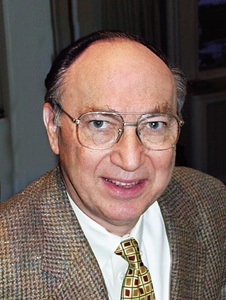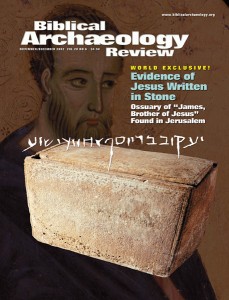First Person: The Big Debate
The battle over the Bible raises more questions than it answers—but you’ll learn a lot if you listen in.

The hottest issue today in the study of Biblical history and archaeology is the question of the Bible’s essential historicity: How true is the Bible? Unfortunately, the issues are hideously complicated.a
Every time I try to write a summary sentence about the controversy, I find that it is wrong or at least needs qualification. For example, in an early draft of this piece, the following sentence appeared: “For those who believe in the literal truth of the Bible, the issue is simple: The Bible says it; therefore it must be true.”
Well, that’s not exactly true. Evangelicals and even fundamentalists have sometimes widely varied views about what they mean by the literal truth of the Bible. What one believer means by literal is symbolic or metaphorical to another. And there’s something else: I talk to many evangelicals about the historicity of various Biblical episodes. I know they are evangelical and I am not, but that doesn’t even come up in the conversation—and is, in fact, irrelevant, because we talk on the basis of scholarly and rational arguments. They defend their position not on faith grounds, but on scholarly materials that we share but may (or may not) interpret differently.
Already a library member? Log in here.
Institution user? Log in with your IP address.

